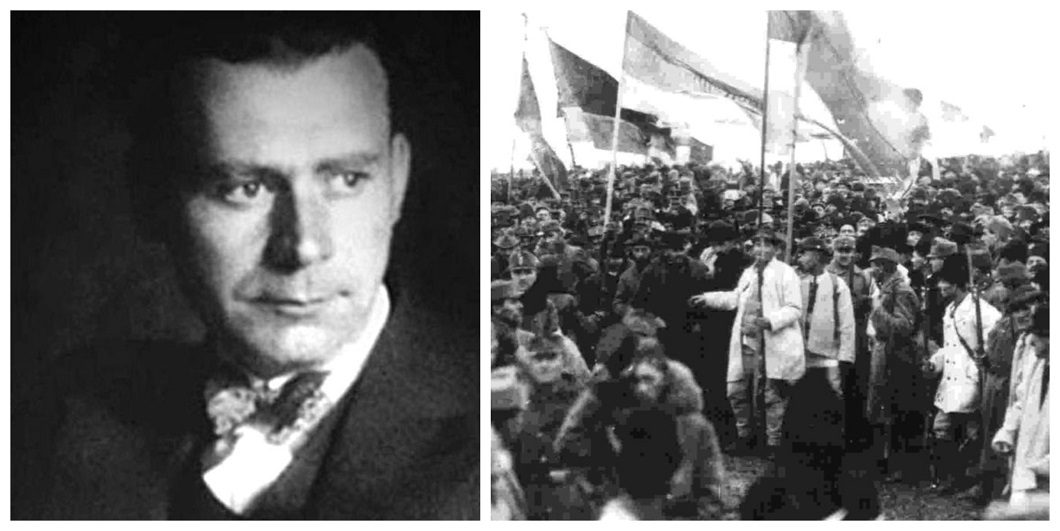Lucian Blaga had just returned to Sebeș from his studies in Vienna on November 1, 1918. The Hungarians still did not believe in the collapse of the empire, but things changed from one day to another: the gendarmes who still displayed a calm air “[…] were still wearing their cock feathers on town streets”, the Saxons being the only ones who “[…] had sallow and dismayed faces”. In the morning of the next day, in an instant, everything had disappeared: “[…] All the Hungarian gendarmes, disguised as Wallachian priests, in peasants and shepherds in traditional garbs, left the city, through the narrowness between the two very darkened clocks, and a clerk from the town hall was shot by strangers, after he had been lamentably dragged from his bedding to the market”.
“[…] On the afternoon of November 3, the Romanian population from Sebeş-Alba, gathered near the church by the river, and started a massive march towards the city centre, towards the big square, headed by soldiers which arrived in the course of the morning from the front and a few local intellectuals […] The heavy threat arose, especially from the surrounding villages, that they will storm the city […] Seeing all this, the population took to robbery. People came with wagons, as on the day of the fair and catching it from another without opposition, loaded everything that was to be loaded from the cellars, they emptied the tavern […]. The whole time the reign of darkness lasted, good men resorted to plundering as if in a dream you are ashamed to tell”.
“[…] On the morning of December 1, in an instant, the Romanian people went on their way to Alba Iulia […] It was a cold winter morning. The breath was encased in invisible crystals […] In Alba-Iulia I could not make my way in the assembly hall. Lionel, who was in the delegation, entered. I renounced with a broken heart, and comforted myself with the hope that I would learn from my brother everything. Instead, I had the advantage of being able to roam from place to place, all day, on the field where the people gathered. It was an unbelievable roar […]. That day I knew what national enthusiasm means, sincere, spontaneous, irresistible, organic, massive. There was something that made you forget everything, even the awkwardness and utter lack of routine of the speakers at the tribune. In the evening, while we were returning with the same carriage to Sebeş, both myself and my brother felt carried away by the awareness that we had “laid” the foundation of another Time, although we only had “participated”, silent and insignificant, to an act realized by the power of destiny. The act at the crossroads, with its strength and atmosphere, communicates a historical consciousness. When we passed through Lancrăm, our native village, the road led us to the cemetery where, near the church, father was sleeping under the poplar roots. The noise of the wheels of course reached him and shook his bones. «Ah, if only father knew what happened», I say to my brother, turning my head to his cross in the cemetery […]. The village was dark and quiet. However, when we turn to leave the village, we unexpectedly hear from a courtyard, the cry of a child: «Long live plump Romania!»”.
Translated by Laurențiu Dumitru Dologa

